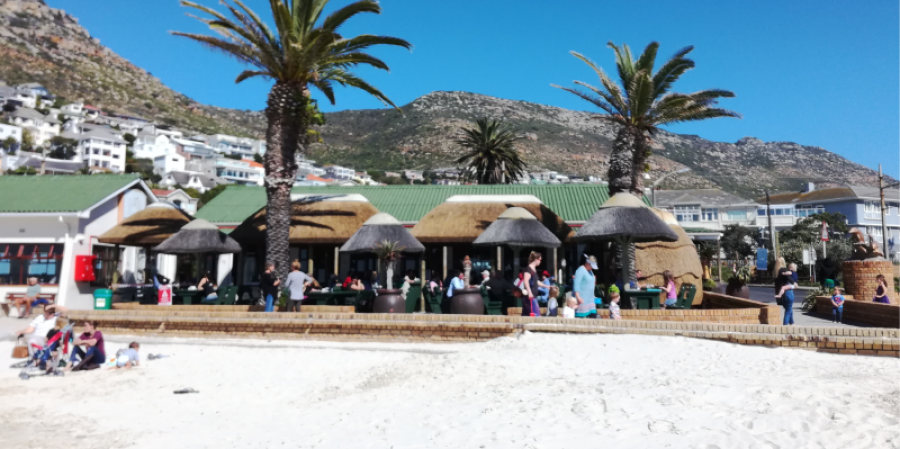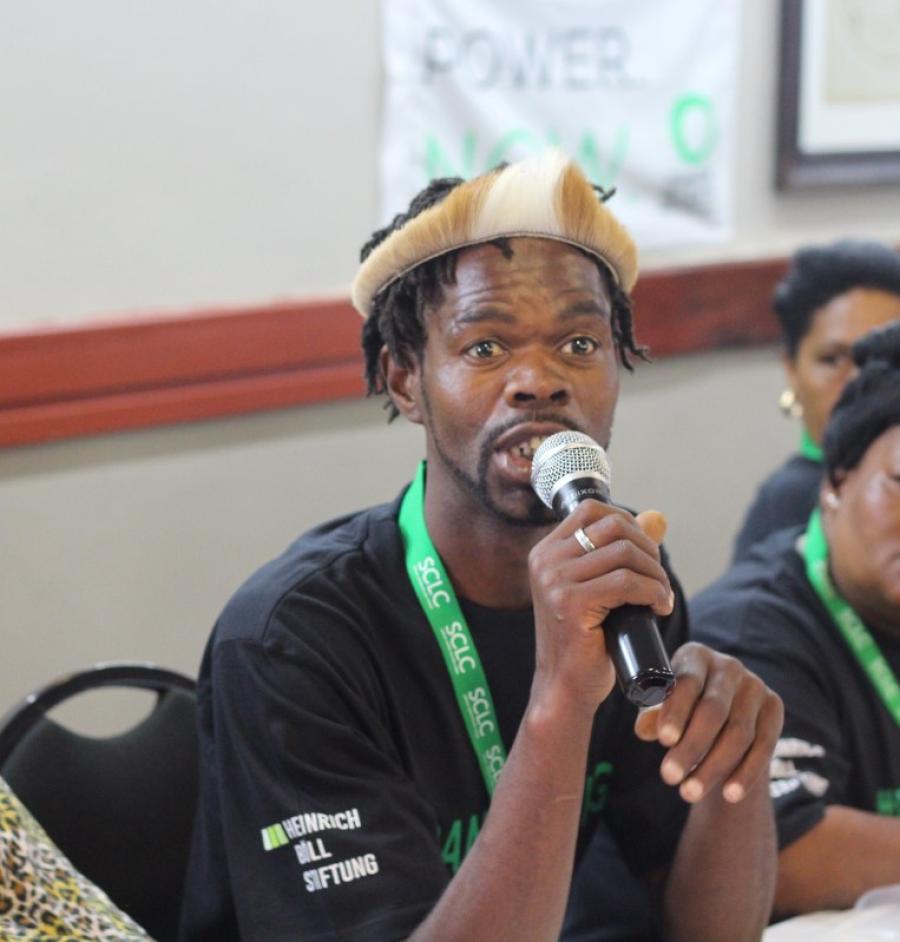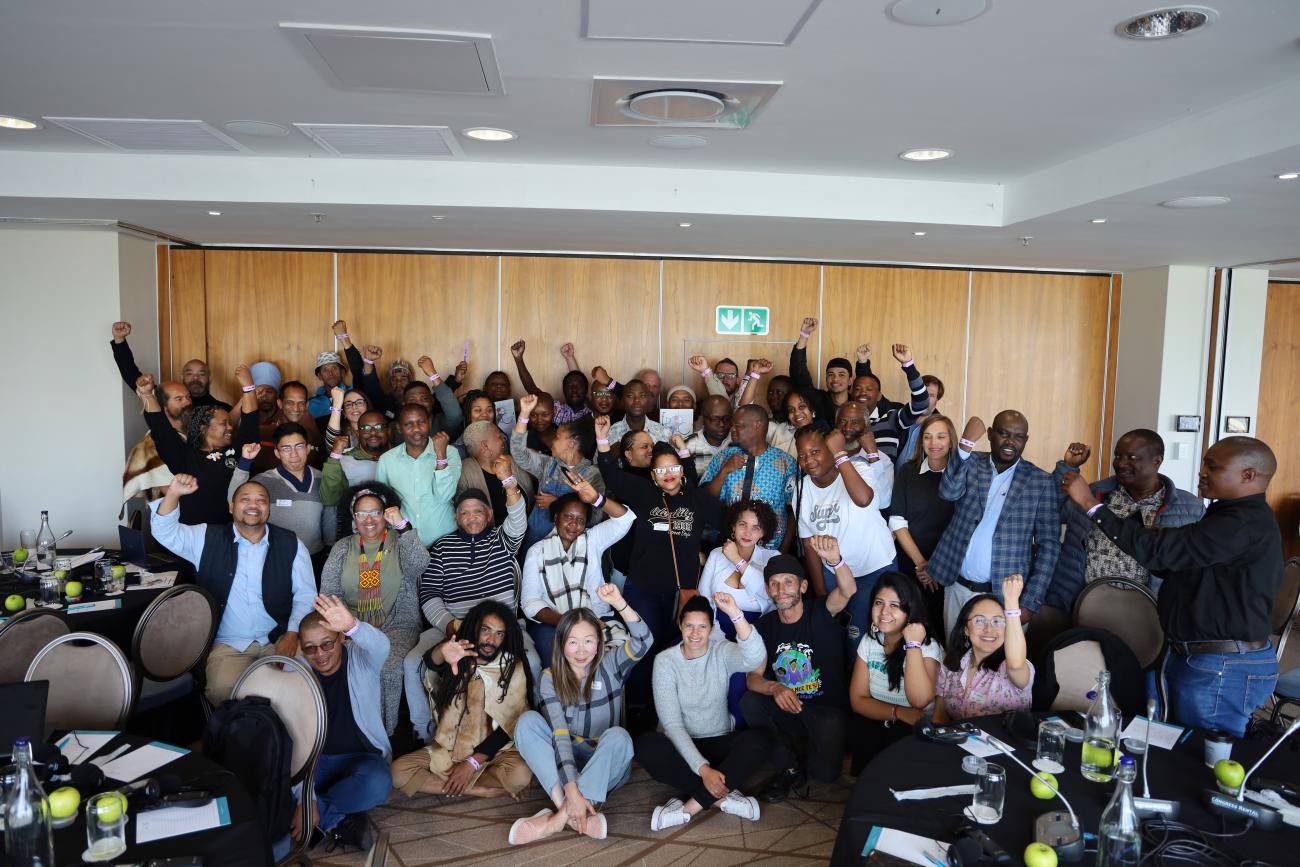
By CS Staff
On September 20-24, 2023, overlooking Hoerikwaggoa (Table Mountain) in Cape Town, South Africa, Indigenous people from Africa and abroad gathered to exchange experiences about implementing the right to Free, Prior and Informed Consent (FPIC) in the context of mineral extraction.
Free, Prior and Informed Consent is fundamental to the self-determination of Indigenous Peoples. It is enshrined in International Labour Organization Convention 169 and the UN Declaration on the Rights of Indigenous Peoples, among other international legal instruments. Indigenous Peoples must be consulted prior to the execution of any project in their territories and, whether or not they grant consent, they must be the exclusive decision-makers. The right to FPIC flows from Indigenous Peoples’ right to self-determination; it encompasses and protects all rights of Indigenous Peoples, including land rights, collective rights, and participatory rights, among others. FPIC is specifically mentioned as a prerequisite for any activity that affects Indigenous communities in the UN Declaration of the Rights of Indigenous Peoples.
The event was attended by over 50 participants from organizations and communities in South Africa, Botswana, Zambia, Zimbabwe, Kenya, the Democratic Republic of Congo, and the United States. The exchange was shared and co-hosted by partner organizations First Peoples Worldwide, Earthworks, The Indigenous Peoples of Africa Co-ordinating Committee (IPACC), Natural Justice, Southern Africa Resource Watch (SARWATCH), Jamma International, and the Securing Indigenous Peoples’ Rights in the Green Economy (SIRGE) Coalition, of which Cultural Survival is a founding member.
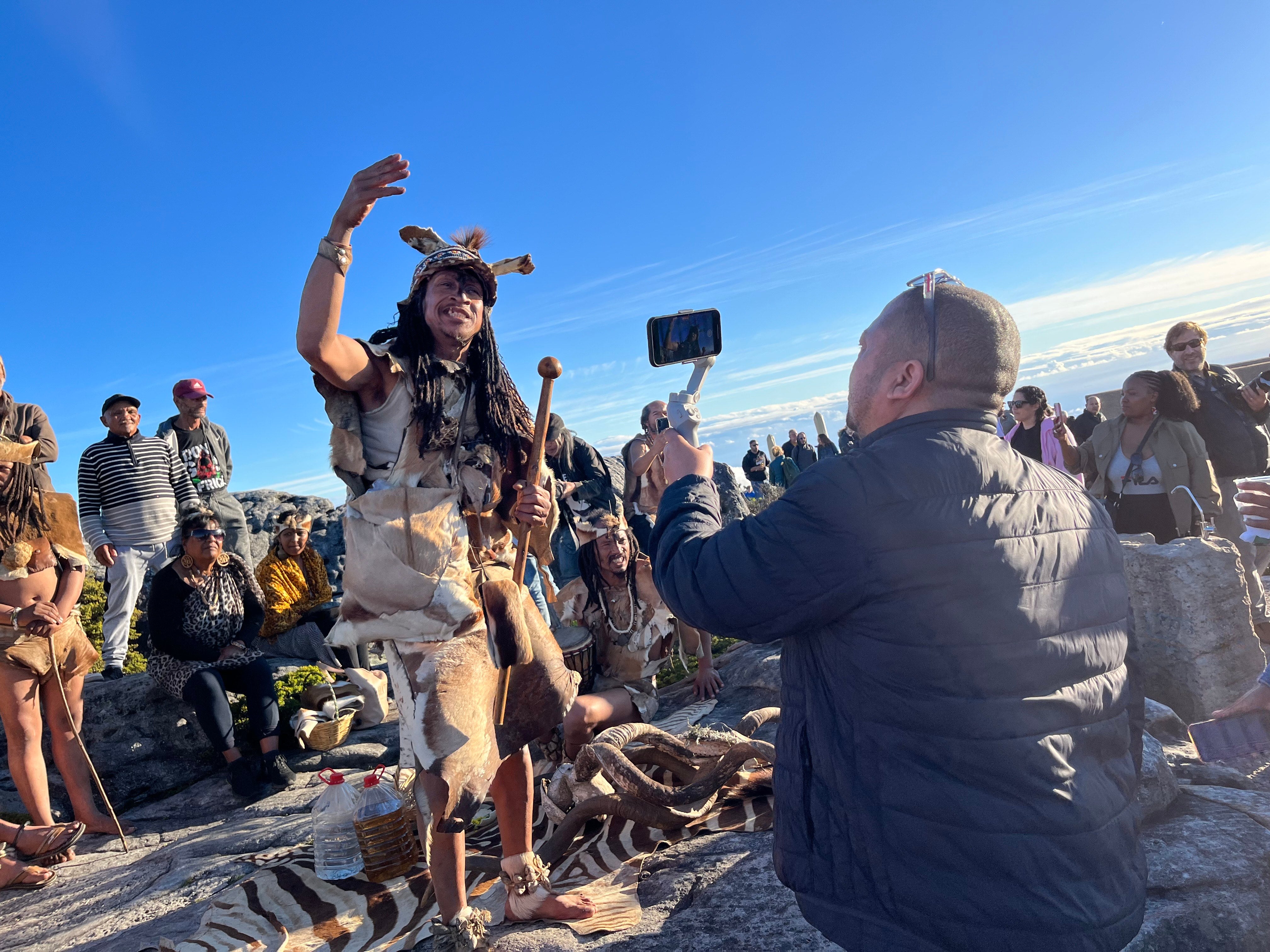
Bradley Van Sitters of the Mountain 12
A welcoming ceremony called out to historic figures from the North, South, East, West. Harry the beachcomber or Autsumao, one ancestor who was summoned during this ceremony, was a famous early resident of Blaauberg Beach, where the conference was held, along with the Goringhaikona people who inhabited the area hundreds, if not thousands of years ago. The descendants of Khoikhoi people are doing much to revitalize the cultures and languages of the ancestors, and the Mountain 12, a collective of Khoi and San Peoples whose members were arrested in 2021 after reclaiming their rights over the sacred mountain of Hoerikwaggoa as their ancestral land, welcomed the delegates and partners to the conference.
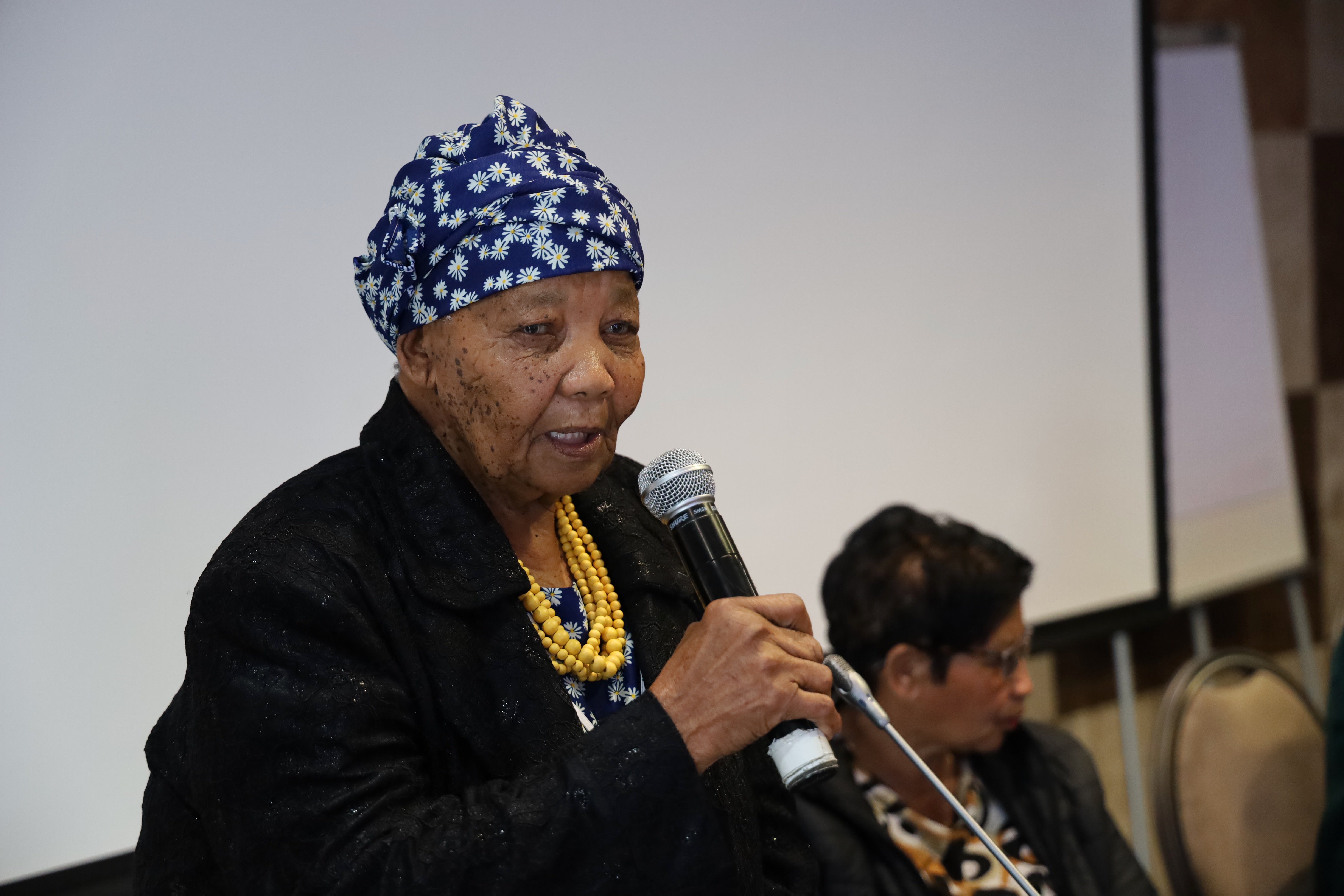
Ouma Katrina.
The conference room was set ablaze in song by three generations, Ouma Katrina, her son and daughter, and also her granddaughter Claudia, who opened the proceedings in a N/uu song. Ouma (‘grandmother’ in Afrikaans) Katrina Esau (Nama), a respected Elder in South Africa, opened the exchange. Ouma Katrina is the last fluid speaker of the N/uu language, which she has been teaching to her granddaughter in an effort to keep their culture alive. Ouma Katrina described some of the hardships that she and other South African communities have endured since colonization, which have resulted in the loss of many Indigenous languages: “Our lands were stolen and we woke up with the Bible in our hands. Our language was stolen. They subdivided us, then they took our minerals and sent everything abroad. We were so rich but now we are poor. All of our riches have been moved abroad.”
Several sessions focused on understanding FPIC as a fundamental right for Indigenous Peoples and as a tool to advocate for their self-determination in different spaces and situations. Participants spoke passionately about the impact of mining for transition minerals in Indigenous territories. Indigenous territories contain significant amounts of untapped heavy metal reserves around the world, putting Indigenous lands and communities at risk. Of 5,097 mining projects globally that involve some 30 minerals used in renewable energy technologies such as electric vehicles, solar panels, and wind turbines, 54 percent are located on or near Indigenous Peoples' lands and territories. Speakers exchanged information on how the exploitation of these resources violates Indigenous Peoples’ rights in the transition to a “green economy.”
About 80 percent of the world’s remaining biodiversity is managed by Indigenous Peoples, but irresponsible mining is threatening it. There is a critical need to support affected and at-risk Indigenous communities to exercise their right to self-determination and Free, Prior and Informed Consent when mining for transition minerals is proposed on their territories. It is vital that Indigenous Peoples are prepared to engage with companies attempting to exploit their territories in order to protect their right to FPIC.
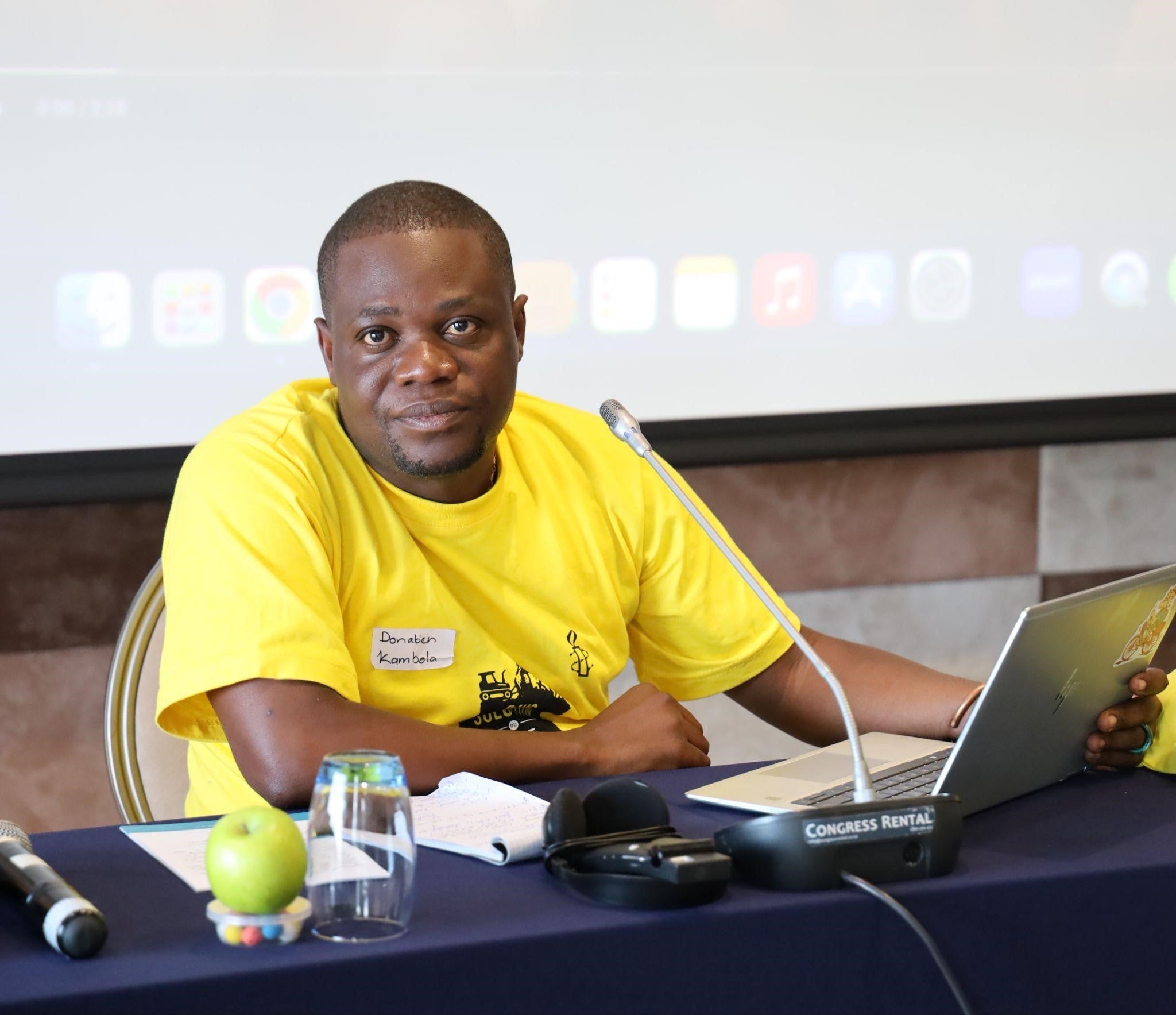
Donatien Kambola.
As discussions unfolded, It became clear that Indigenous Peoples share similar experiences of dispossession and limited access to information about the green economy and its association with mining activities. Donatien Kambola, a lawyer and defender of the rights of populations in mining areas in the Democratic Republic of Congo, said, “I want to say to Belgium: you took our copper, you took our cobalt, and you became rich. After colonization, the system of mining that exploited the land in favor of the multinational and foreign industry continued. Yes, it’s good for the environment to buy an electric vehicle, but you have to make sure that cobalt was mined in good conditions.”
In addition to the technical sessions held about FPIC, participants shared their specific experiences and listened to others talk about the negative impacts that their communities have suffered from mining activities. Hearing these diverse, yet similar experiences demonstrated that there are two defining factors that distinguish the struggles of Indigenous Peoples in the African region: one is the fight to maintain their individual cultures, languages, and traditions in the face of colonialism, discrimination, and marginalization. At the same time, there is a need to expand the sense of community to enable Indigenous Peoples to work collectively towards the defense of their territories and resources.
This point was emphasized by Bradley Van Sitters, a member of the Mountain 12, who spoke about how Indigenous communities are forcibly removed from their territories to benefit multinational corporations. He urged all attendees to reflect on mechanisms to work together and to learn from each others’ experiences, because in the end, he said, “Your fight, my brother, is ours, and ours is yours.”
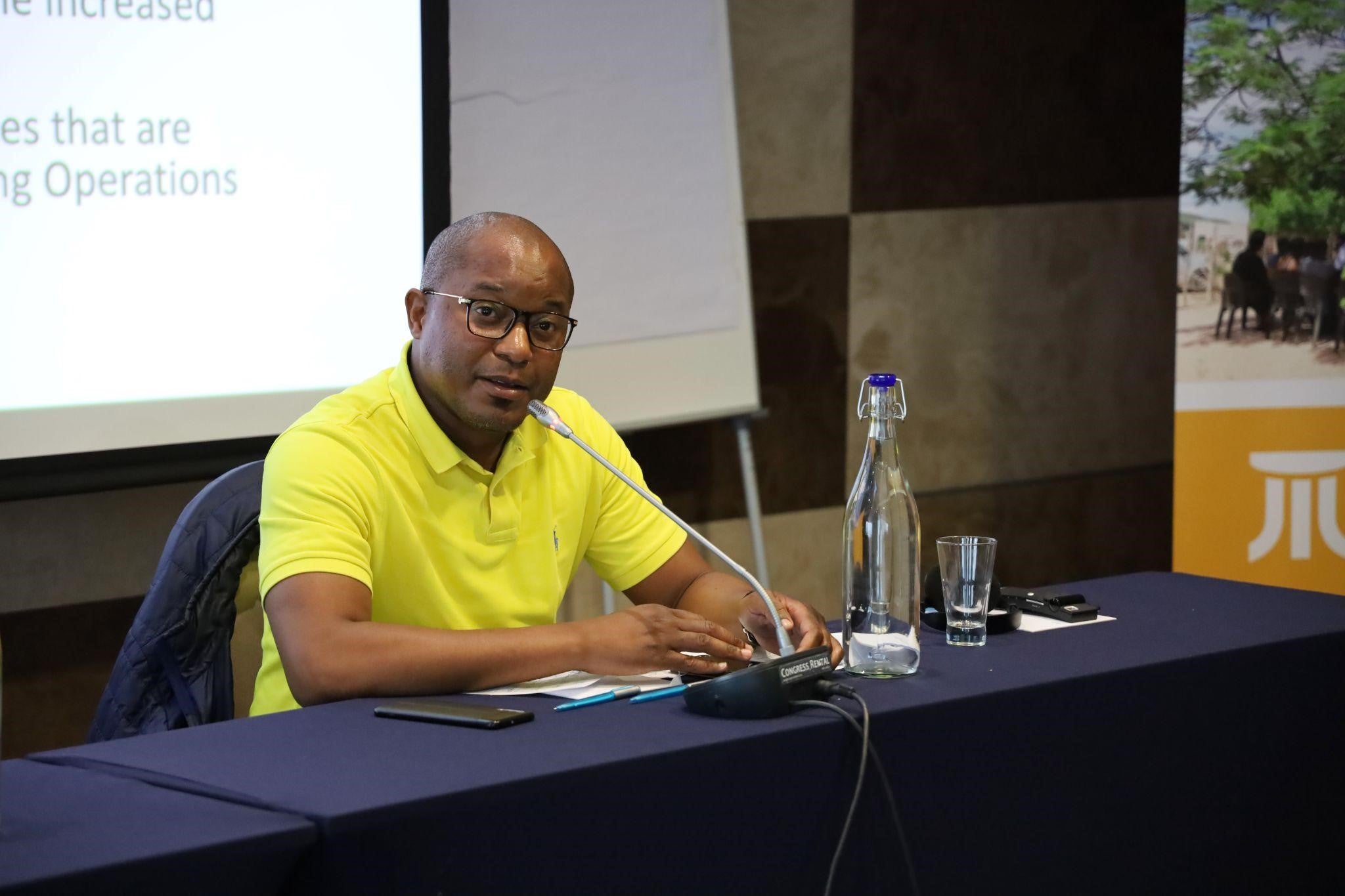
Chilekwa Mumba.
Chilekwa Mumba, an environmentalist activist from Chingola, Zambia, and recipient of the 2023 Goldman Environmental Prize who organized a lawsuit against a copper mining company responsible for the severe contamination of his community from toxic waste, encouraged participants to ensure that Indigenous customs and values are prioritized when engaging with corporations. “We shouldn’t just let corporations take over our land without proper consideration of who we are and where we have been. These corporations will bring about destruction of our normal way of life, and a tree without roots cannot stand...If we make sure we’re educating our communities, we can hold these companies to account in a much higher way than we are doing right now,” Mumba said.
To explain the legal frameworks backing Indigenous Peoples, Lesle Jansen (Khoikhoi), a lawyer, spoke about the status of Indigenous rights in South Africa. Jansen led a groundbreaking case in South Africa that established that Khoikhoi and San Peoples hold intellectual property rights to the Rooibos plant. The case defines a benefit-sharing system where Khoikhoi and San Peoples are now paid 1.5 percent of Rooibos sales. Jansen also remarked on the importance of keeping African communities informed about FPIC, the green economy, and its implications in Indigenous territories in order to move forward for the benefit of Indigenous Peoples. “We are fighting for self-determination, and FPIC is the car that brings us there,” Jansen said.
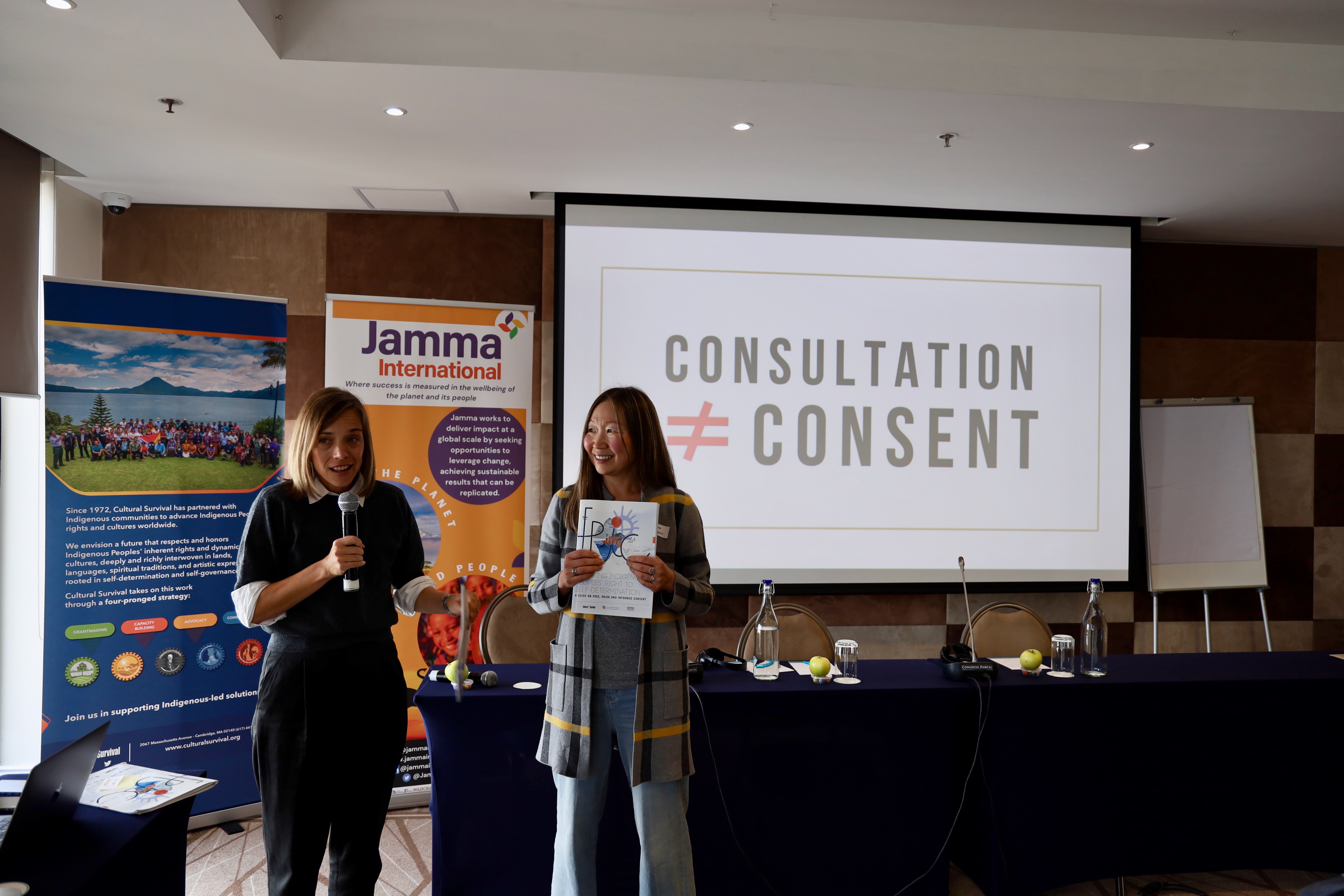
Galina Angarova and Kate Finn.
Galina Angarova (Buryat), Cultural Survival Executive Director, and Kate Finn (Osage), First Peoples Worldwide Executive Director, presented a new guide on Free, Prior and Informed Consent for Indigenous leaders to develop FPIC protocols and secure self-determined priorities of their communities. “As more and more Indigenous Peoples forward their own FPIC processes and protocols to assert their rights, this guide collates many of the questions, considerations, and actions that Indigenous Peoples have made with their priorities and activation on FPIC. This guide reflects many of the lived experiences and real world considerations that Indigenous Peoples face, and we are grateful for the contributions and work Indigenous leaders around the world have made to this guide and to their communities,” Angarova commented.
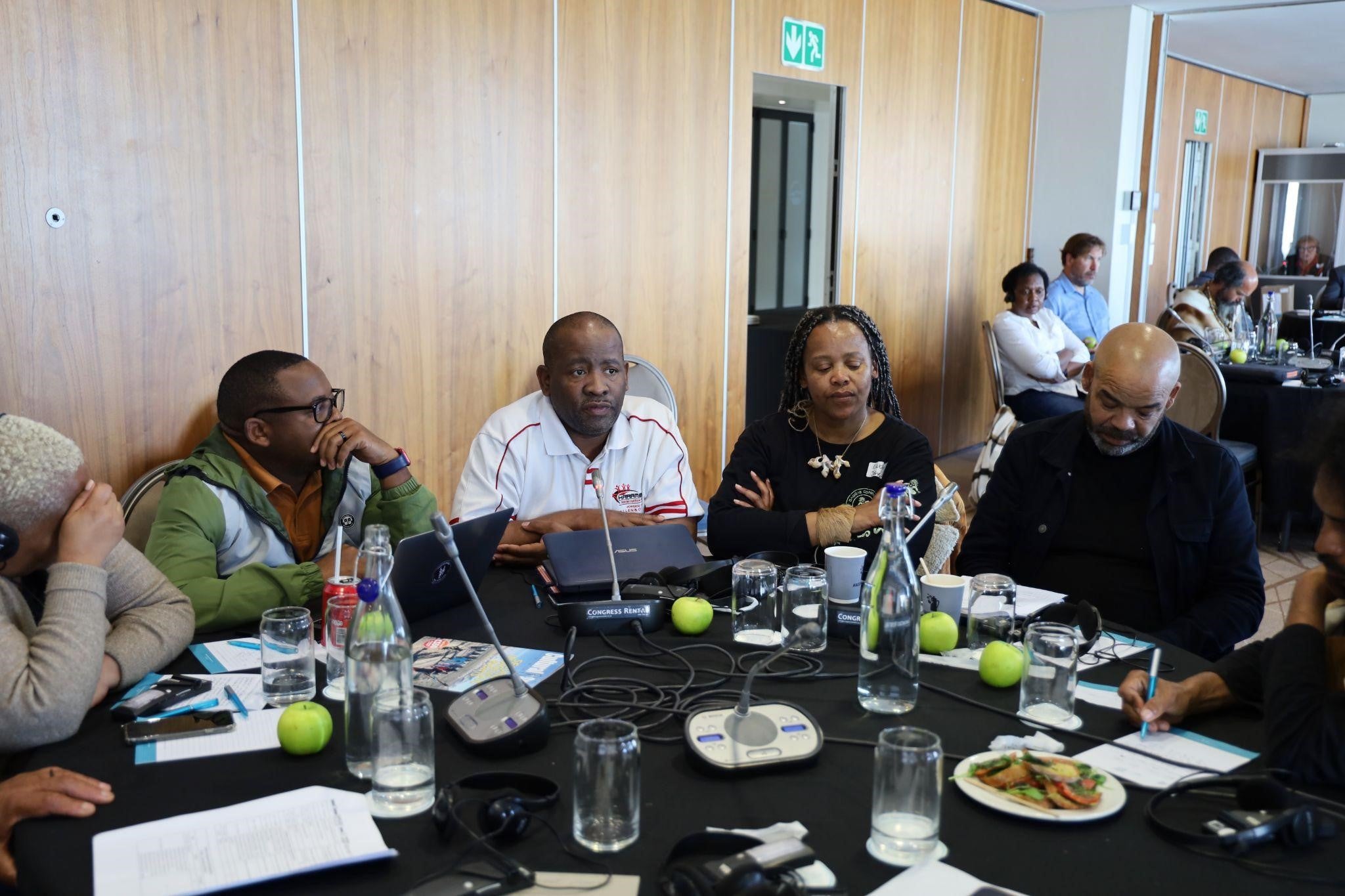
Throughout this exchange of experiences, the diverse communities in attendance shared the strategies they have implemented and the ways they organize themselves. As the first event of its kind hosted by Cultural Survival and our partner organizations in the African region, the participants allowed us to better understand their situations while demonstrating that the true and valuable knowledge about Indigenous Peoples is in the communities—and that is where we should look for answers and solutions.
While rampant capitalism represented by multinational corporations is determined to dispossess Indigenous Peoples of their resources, a true Just Transition to a green economy can not happen at the expense of Indigenous Peoples. It must be led by Indigenous Peoples, who have always been and remain, the stewards of the Earth.
